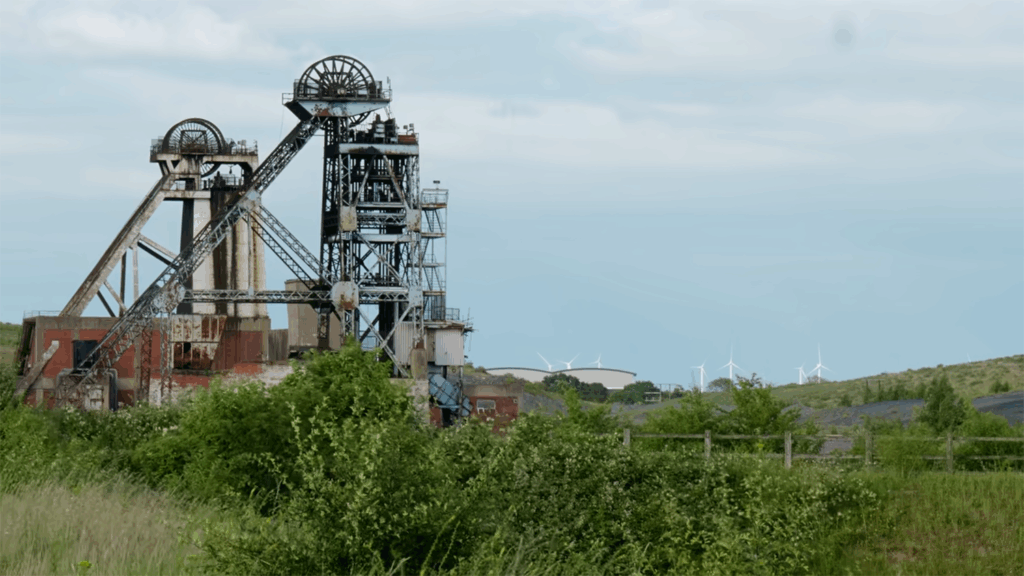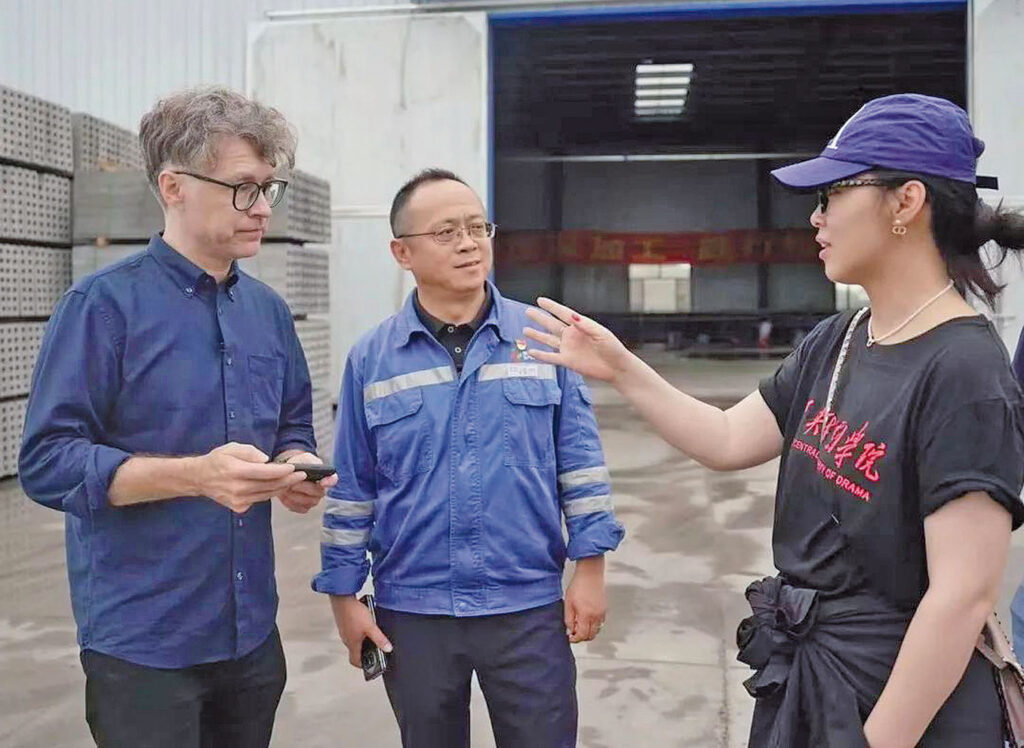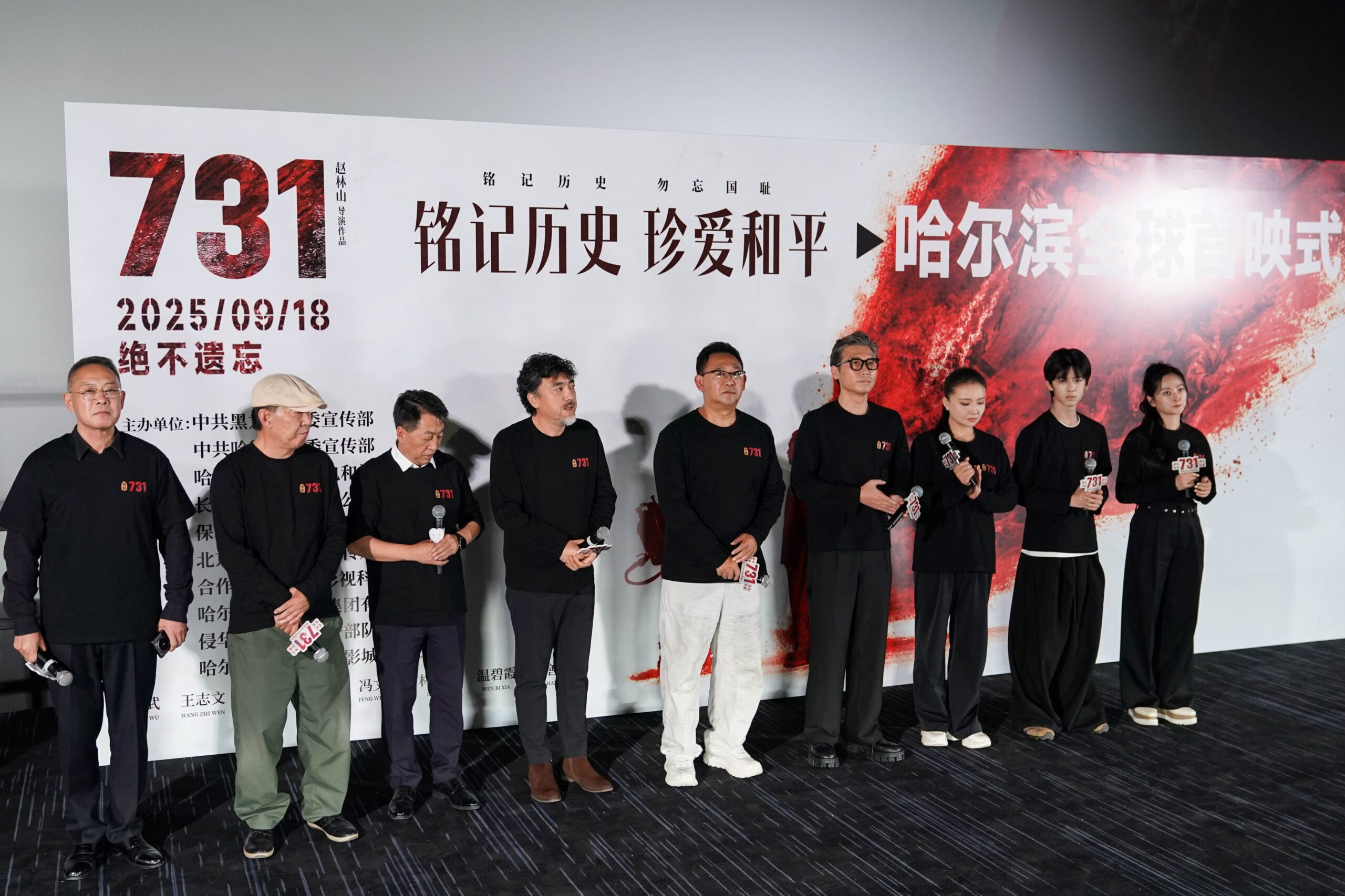A cross-cultural documentary explores how communities in China and Britain confront the fading past of heavy industry—and find new meaning in what remains.
In the freezing winter of 2021, the Qinghe Power Plant in Liaoning province was on the brink of collapse. British documentary filmmaker Arthur Jones then made a solemn promise. He told Li Jia, a young plant employee: “If this plant survives, I will return.”
Three years later, news emerged during a speech competition titled “My Appointment with Arthur Jones”: Jones would return in the summer of 2024, earlier than expected. His visit marked the start of the Sino-British co-production Return to Qinghe.

Creating a Conversation Between Cultures
The documentary premiered on 3 June 2025 on China Dragon TV. It uses a parallel narrative to portray both the painful industrial transition in northeast China’s old industrial base and the revival of Britain’s former coal-mining areas.
A month after the broadcast, Arthur Jones and Chinese director Jin Dan reflected on their experience of making the documentary. Jin explained that the parallel storytelling was intended to create a “a visible conversation between cultures.” The idea draws on Jones’s own background in Yorkshire, a region shaped by coal mining. What might seem like a coincidence, she said, in fact reveals how industrial change often follows similar patterns across different societies.

Jones, who has lived in China for over 20 years, agreed. “The contexts differ,” he noted, “but local people experience similar challenges.” He recalled his childhood during the 1980s miners’ strike in Britain. At the time, he didn’t understand what was happening. It was only later, witnessing China’s environmental transformation up close, that the parallels became clear.
The documentary highlights the dedication of three generations of Li’s family, whose lives are tied to the power plant. This contrasts with the experience of British miners fighting for fair treatment through strikes. According to Jin, the Li family’s loyalty is a product of both tradition and corporate culture, reflecting the strong identification workers can have with their workplace. She added that today, many Chinese companies are adopting modern service values, new technologies, and global thinking. Ultimately, these changes offer fresh ways for workers and businesses to move forward together.

The Dignity of Hard Work
Jones shared a more personal perspective. He believes there is dignity in hard, dangerous work. “Working in a mine or power plant may be dangerous,” he said, “but it’s also an honour. When the industry changes suddenly, people struggle to adapt.”
The most poignant moment comes when Paul, a British friend and former miner, hums a strike-era folk song by the fire. The tune echoes the Qinghe workers’ own factory anthem. For Jones, this scene captures the film’s core message: empathy. “Once the background is clearly explained,” he said, “international audiences will understand and care.”

Jin added that the aim was to break through cultural and regional boundaries. She hopes viewers will “recognise the differences, appreciate the common threads, and find shared meaning.”
Return to Qinghe is the first in a co-produced environmental documentary series. Jin revealed that future projects will explore ecological preservation at Poyang Lake and Hainan province’s gibbon conservation, continuing the theme of “dedicated protection and regeneration.”

The echo between British folk songs and Chinese factory anthems carries a broader vision — that stories of individual resilience can ignite change, illuminating the path through social and industrial transformation.
Additional reporting by Chen Hui.
If you liked this article, why not read: More Young People in China are Heading Outdoors to “explore new frontiers”











XxjpsgC007252_20250815_PEPFN0A001.jpg)